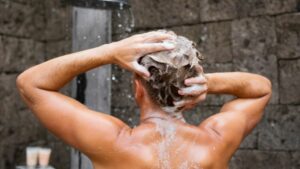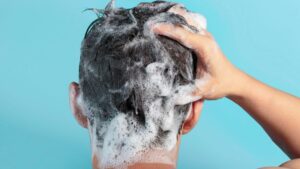A case study involving a woman’s hair loss is a good example of how alternative medicine can be effective in treating a wide variety of health problems, including hair loss. It can also help patients overcome sleep problems, joint pain, and foggy brain. Using acupuncture is an excellent way to address a wide range of symptoms at once. After ten treatments, the patient’s bald patches gradually filled in. Acupuncture points work on an organ level to increase blood circulation to the balding areas.
CCCA
A case study is presented in which a patient who had CCCA was treated with topical metformin. This treatment produced significant regrowth within six months of treatment. Moreover, it was well tolerated by the patient. Topical metformin has no gastrointestinal or systemic side effects. This treatment is a suitable alternative for patients who have failed other treatments.
Symptoms of CCCA include itching and burning of the scalp, and noticeable thinning of the hair in the crown area. This condition typically begins in the early thirties. When Jennifer Wells presented her symptoms, she assumed that she was suffering from female pattern baldness, or androgenetic alopecia. However, she had a family history of the disease.
Telogen effluvium
A case study of a woman with a long-term history of telogen effluvium hair loss is presented. This woman was admitted to the hospital for an extradural hematoma, but her hair loss persisted. Her condition was later diagnosed as neurofibromatosis.
Telogen effluvium is caused by various factors, but it usually starts within 12 weeks of treatment. Some common causes include high fevers, childbirth, severe infections, psychological stress, major surgery, and an underactive or overactive thyroid gland. It is also caused by certain medications, including antidepressants and beta-blockers.
Mesotherapy
Mesotherapy is a treatment option for patients suffering from hair loss. The treatment is performed using a specialized mix that contains specific vitamins and minerals. Each patient’s case is different, but the treatment can restore hair and scalp health. However, results vary, so it’s not possible to say for sure what to expect.
The chemical formula used in mesotherapy contains finasteride, minoxidil, biotin, and organic silicium. These agents improve blood circulation to the hair follicle and promote collagen production. The treatment also includes micro-perforations to aid in the formation of new hair cells.
Radiation therapy
Radiation therapy for hair loss may not be the right solution for every hair loss patient. For example, the schedule for each session may conflict with the patient’s job or family’s needs. Also, the treatment may cause severe skin irritation, including peeling and blistering. It can also cause underarm and breast pain. As a result, patients may choose to stop the therapy or opt for other treatment options.
Before the procedure, the patient was counseled about the optimal outcome and the type of treatment. She underwent radiation therapy on her scalp. The doctor determined that she was a good candidate for the procedure and her blood supply to the affected area was excellent. She also had a good capillary refill, a test of blood flow in skin tissue. She was also counseled about the next step in the process, including another follow-up ten months after the first treatment.
Caffeine treatment
Caffeine has several benefits for the hair and scalp, and is increasingly being used as a hair loss treatment. It works by inhibiting a certain enzyme, 5-a-reductase, which produces the hormone DHT and is responsible for hair loss. It also enhances circulation, getting more nutrients and oxygen to the cells.
However, studies of its effectiveness are limited. One small study found that it induced new growth in hair follicles in a petri dish. Similar findings were seen in other studies, but they were not large enough to draw a definitive conclusion. The research that has been conducted so far on the effects of caffeine on hair loss is promising, and it could lead to more effective baldness treatments.
PRP
PRP for hair loss is a treatment that uses the growth factors that are naturally produced by your own blood to stimulate hair follicle regeneration. These factors are responsible for stimulating several key hair follicle cell cycle signaling pathways, including Wnt/b-catenin transcription. The treatment uses an all-natural formula that uses no harsh chemicals.
The amount of PRP administered in each treatment was not statistically significant. However, studies with a minimum of 3 treatments showed improvements in at least one objective measure, including hair volume and density. The results of PRP for hair loss case study are promising, but there are still some limitations. For one, the sample size is too small. Further research is needed to identify the most suitable candidates for the treatment, and to develop a more standardized protocol.



